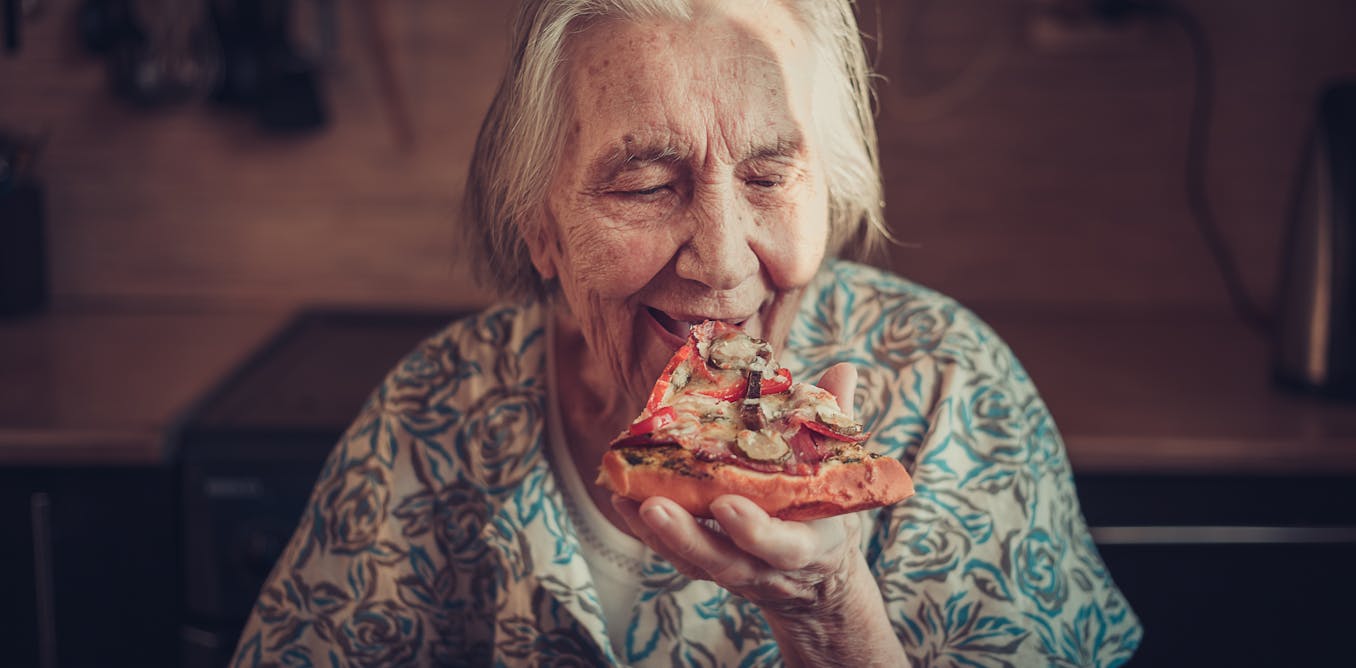Why You Should Never Take Nutrition Advice from a Centenarian
It’s a cliché of reporting on people who reach 100 years of age, or even 110, to ask them some variation of the question: “What did you do to live this long?”
Inevitably, some interesting and unexpected answer is highlighted. Fish and chips every Friday. Drinking a glass of strong liquor every day. Bacon for breakfast every morning. Wine and chocolate. While a popular news story, this is a relatively meaningless question that doesn’t help us understand why certain people have lived so long.
The Problem with Survivorship Bias
This phenomenon is known as survivorship bias, or the cognitive and statistical bias introduced by only counting those that are around to count but ignoring those that haven’t “survived”.
You can take these examples to the absurd. Imagine a group of 100 people, all of whom have smoked their entire life. As a group, the smokers would die earlier of cancers, lung disease or heart disease, but one or two might defy the odds and live to 100 years of age. Now imagine the intrepid journalist interviewing the lucky soul on their 100th birthday with that classic question: “What do you attribute your successful ageing to?”
“Smoking a pack a day,” says the newly minted centenarian.
The Importance of Correlation and Causation
Correlation does not equal causation. That point is hammered home relentlessly to students in science degrees. It’s how our brain works, we see a pattern between two variables, and assume they’re linked in some way. But often, like in survivorship bias, we’re not looking at all the data, and so finding patterns where there are none.
Why You Shouldn’t Take Nutrition Advice from a Centenarian
I work with a variety of older people and often include extreme outliers who have lived to extreme ages. We’re currently studying over 65-year-olds who have maintained unusually high levels of exercise into older age and have maintained excellent health.
They’re phenomenal examples of older humans, many of them are faster, fitter and stronger than me by many of the measures we perform in the lab, despite being almost twice my age.
While we know that their lifelong exercise is associated with their unusually good health into older age, we can’t directly say one causes the other yet. It could be that highly active people are protected against chronic diseases such as cancers, diabetes and heart disease. But it also could be that these people are still active into older age as they’ve not been afflicted by cancers, diabetes or heart disease earlier in their lives.
Conversely, there could be some unknown third factor that we’ve not yet identified about these people that both keeps them healthy and separately keeps them exercising.
Conclusion
For clarity, there are things that scientists like me will say in carefully caveated, scientific language that will probably help you to live longer. Being very physically active, not eating too much and not smoking are all on that list, along with generally having a positive outlook in life, and of course, picking the right parents and grandparents.
FAQs
Q: What does survivorship bias have to do with nutrition advice?
A: Survivorship bias can lead us to misinterpret the relationship between certain behaviors and outcomes. For example, if we only study people who have lived to 100 years of age, we may assume that their diet or lifestyle is the cause of their longevity. However, this ignores the many people who have not lived to 100 due to various factors, including diet and lifestyle.
Q: How can I make informed decisions about my diet and lifestyle?
A: To make informed decisions, it’s essential to look at the broader data and not just focus on extreme outliers. Consult reputable sources, such as scientific studies and government health organizations, for evidence-based information. Be cautious of anecdotal evidence and avoid making assumptions based on limited data.
Q: What are some evidence-based ways to promote healthy ageing?
A: Some evidence-based ways to promote healthy ageing include regular exercise, a balanced diet, not smoking, and getting enough sleep. Additionally, maintaining social connections, staying mentally active, and managing stress can also contribute to overall health and wellbeing.
Q: Can I really blame my longevity on my diet or lifestyle?
A: It’s unlikely that you can attribute your longevity to a single factor, such as your diet or lifestyle. Many factors contribute to overall health and longevity, and it’s essential to consider the complex interplay between these factors when making decisions about your health.
Q: How can I stay healthy and active as I age?
A: Staying healthy and active as you age requires a combination of regular exercise, a balanced diet, and regular health check-ups. Additionally, maintaining social connections, staying mentally active, and managing stress can also contribute to overall health and wellbeing.
Recommended Products:
-
Sale!

Sports Research Turmeric Curcumin C3 Complex – Softgels with Bioperine Black Pepper Extract & Organic Coconut Oil, Standardized 95% Curcuminoids – Non-GMO Verified & Gluten Free – 500mg, 120 Count
Original price was: $36.99.$20.81Current price is: $20.81. Buy Now -

Arazo Nutrition Turmeric Curcumin with BioPerine 1300mg with Black Pepper – Joint Support Nutritional Supplements – 100% Herbal Tumeric Root Capsules
$15.95 Buy Now -

Physician’s CHOICE Ashwagandha Supplement – 1950mg of Bioavailable Organic Ashwagandha Root Powder – Black Pepper Extract, Stress Support, Mood Support Supplement, 90 Veggie Ashwagandha Capsules
$19.97 Buy Now



